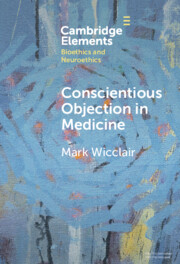Element contents
Conscientious Objection in Medicine
Published online by Cambridge University Press: 12 March 2024
Summary
- Type
- Element
- Information
- Online ISBN: 9781009076081Publisher: Cambridge University PressPrint publication: 11 April 2024
References
- 7
- Cited by

